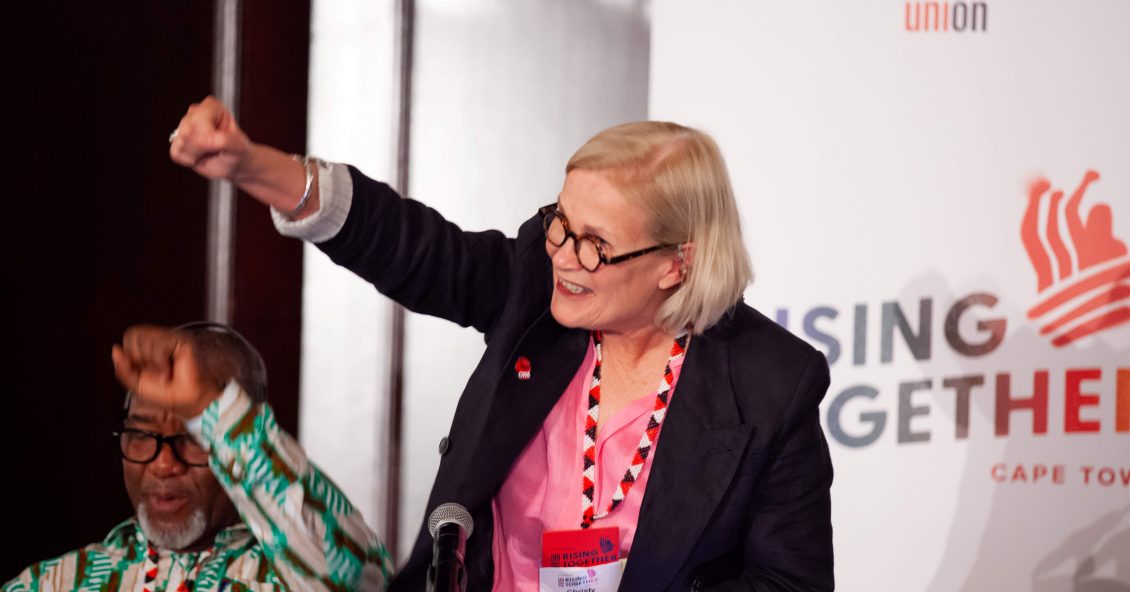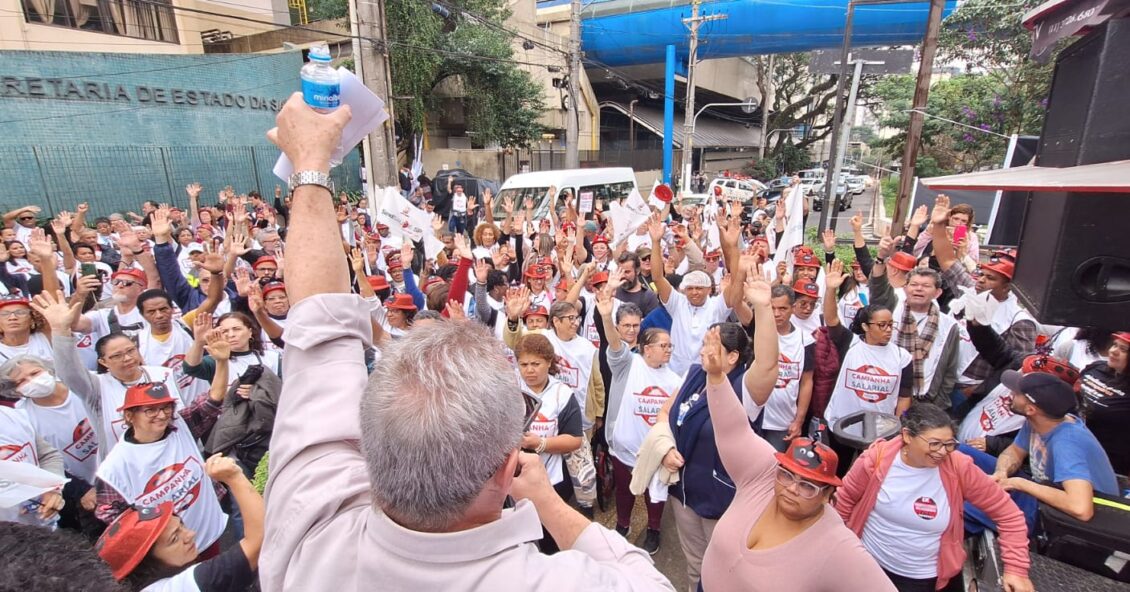Day 1 report – UNI ICTS World Conference kicks off in Cape Town
16.04.24
The UNI Global Union ICTS World Conference kicked off to an energizing start in Cape Town on 15 April with the Imbewu Marimba Community Band setting the scene for a vibrant meeting. More than 230 union leaders from across the globe have gathered in the South African city to set strategic priorities for the next four years and elect a new President.
In her opening speech, UNI General Secretary, Christy Hoffman, reiterated UNI’s commitment to organizing in the sector, which includes workers in IT, tech, telecommunications and business services.
“As these industries change and evolve, unions can change too. We are determined and focused on helping all workers in these industries organize. This sector is at the centre of attention, it is at the centre of the transition in the world of work,” said Hoffman. “AI has to augment human work rather than displace it and the benefits of AI must be shared – and not hoarded by billionaires. We know how to win.”
Zingiswa Losi, president of COSATU, the confederation of South African Trade Unions, echoed the need to adapt to the new realities, declaring: “What we cannot continue down the path of the past to prepare us for the struggles of the present and the future. We must innovate, and we must organize, engage, recruit and listen to the voices of workers.”
So Soulemane, president of UNI Africa ICTS, and the president of SYNATEL, Burkina Faso, remarked on the “tremendous progress” UNI has made in the last five years in the sector. He also highlighted the growth in tech work on the continent, with countries like Kenya, Nigeria, South Africa, Morocco becoming important bases for global tech companies. In business services – Morocco and Tunisia are important for French call centres, and the industry is growing in Mauritius and Madagascar. But he warned that as multinational companies enter the market, they should not be allowed to worsen the problem of informal labour in Africa, through outsourcing or platform work. He urged unions to ensure workers have regular employment contracts.
Claude Cummings, President of the Communication Workers of America (CWA) led the discussion on organizing in tech. He highlighted the growing support for unions in the U.S. “These are challenging times for all workers across the world. And the tech industry is no different. But we are seeing workers rise to this challenge and they are embracing organizing and collective bargaining as a way to build power,” said Cummings.
“CWA is working hard to take advantage of this moment and we are working hard to support workers in their efforts to gain a union voice on the job,” he added. CWA has made major breakthroughs in the tech sector organizing thousands of workers at google and securing a neutrality agreement with Microsoft covering its newly purchased gaming company, Activation-Blizzard-King. It has allowed the union to organize over 1,000 workers at ABK and the agreement is being extended to other parts of the company.”
During the discussion, Louisa Bull, National Officer from Unite the Union in the United Kingdom said her union used many time-honoured strategies to support their organizing – even with remote work. “While tech might be a relatively new sector for unions, tech workers have many of the same issues as all others,” she said.
Daniel Hugli, Director of the ICT Sector at Syndicom in Switzerland, which organizes workers at Google, said that compared to two years ago workers are more conscious of their shared interests and the divide between workers and management in the company.
Hanneli Lindholm, International Officer from the Engineers of Sweden, emphasized the importance of UNI’s Google Alliance in helping to organize and connect with workers. “Tech workers like those at Google work and talk in cross-border teams and so organizing needs to be cross-border too,” she said.
The remainder of the day was directed at workers in business services, with a focus on the global agreement with Teleperformance – covering more than half a million workers at the world’s largest contact centre company. Workers and trade union leaders from Colombia, the Dominican Republic, France, Ghana and the Philippines expressed how the agreement is opening the door to unionizing and further exercising their rights in their countries. Since the agreement, which was signed in December 2022, it has been successfully rolled out in Colombia, El Salvador, Jamaica, Poland and Romania.


